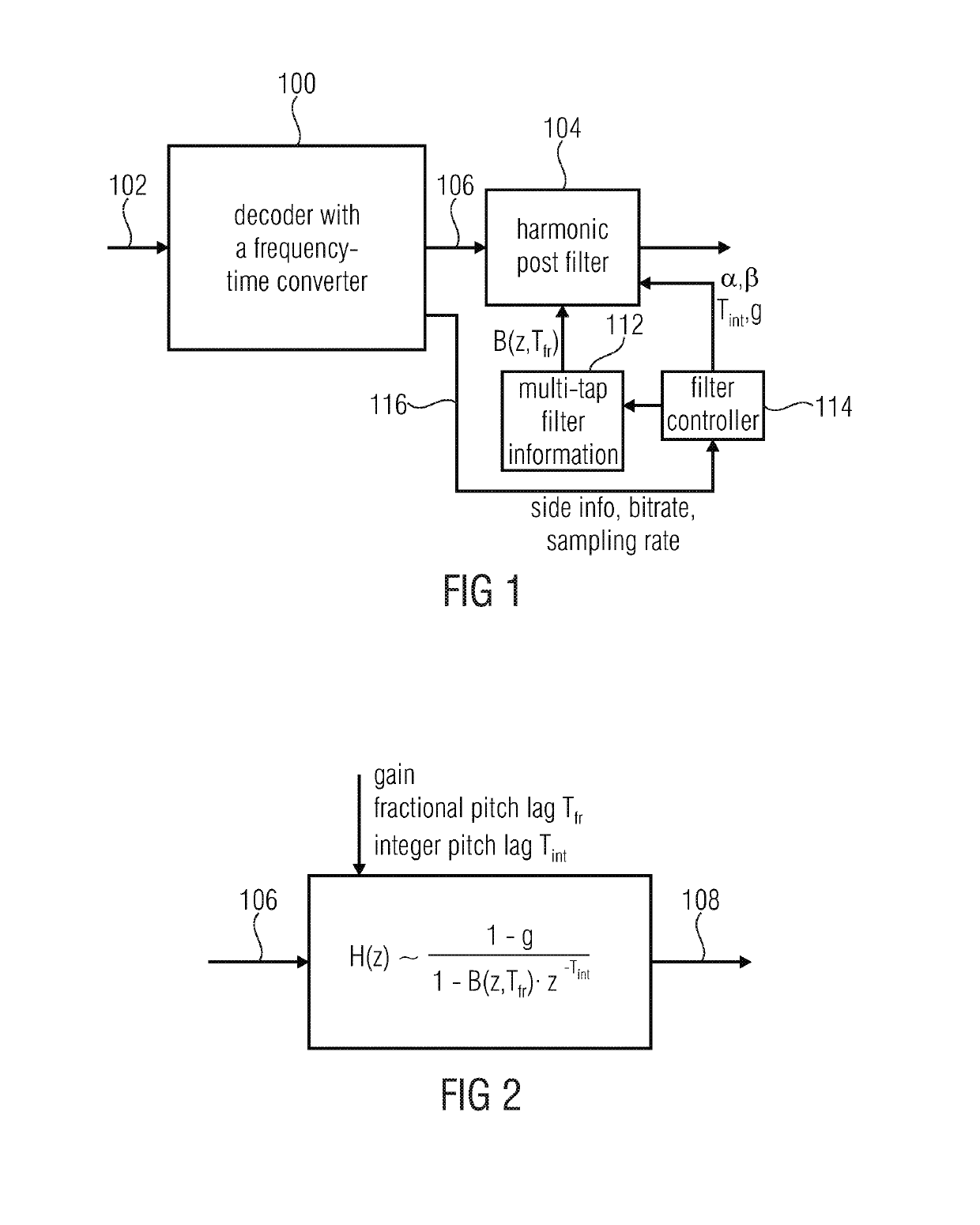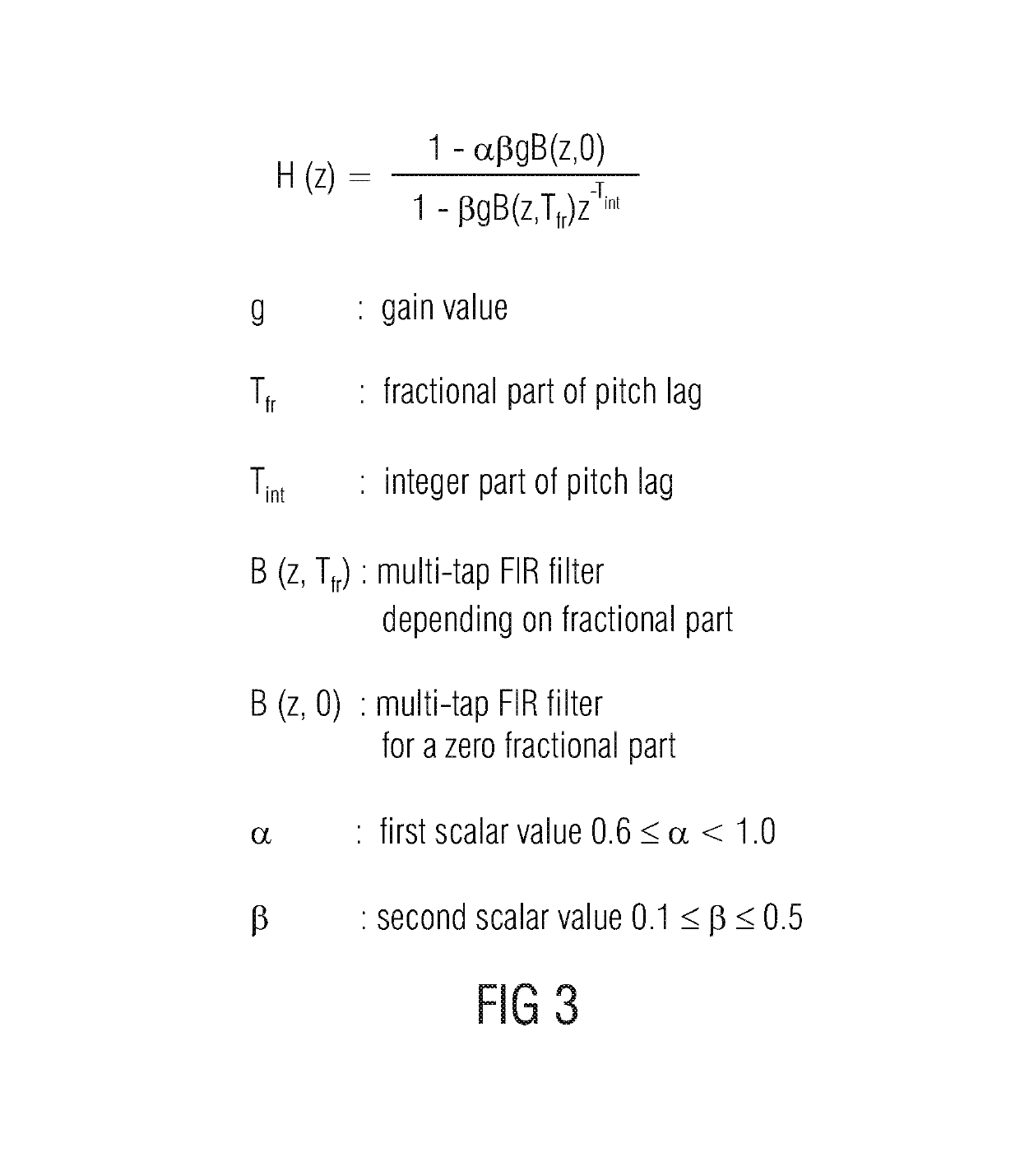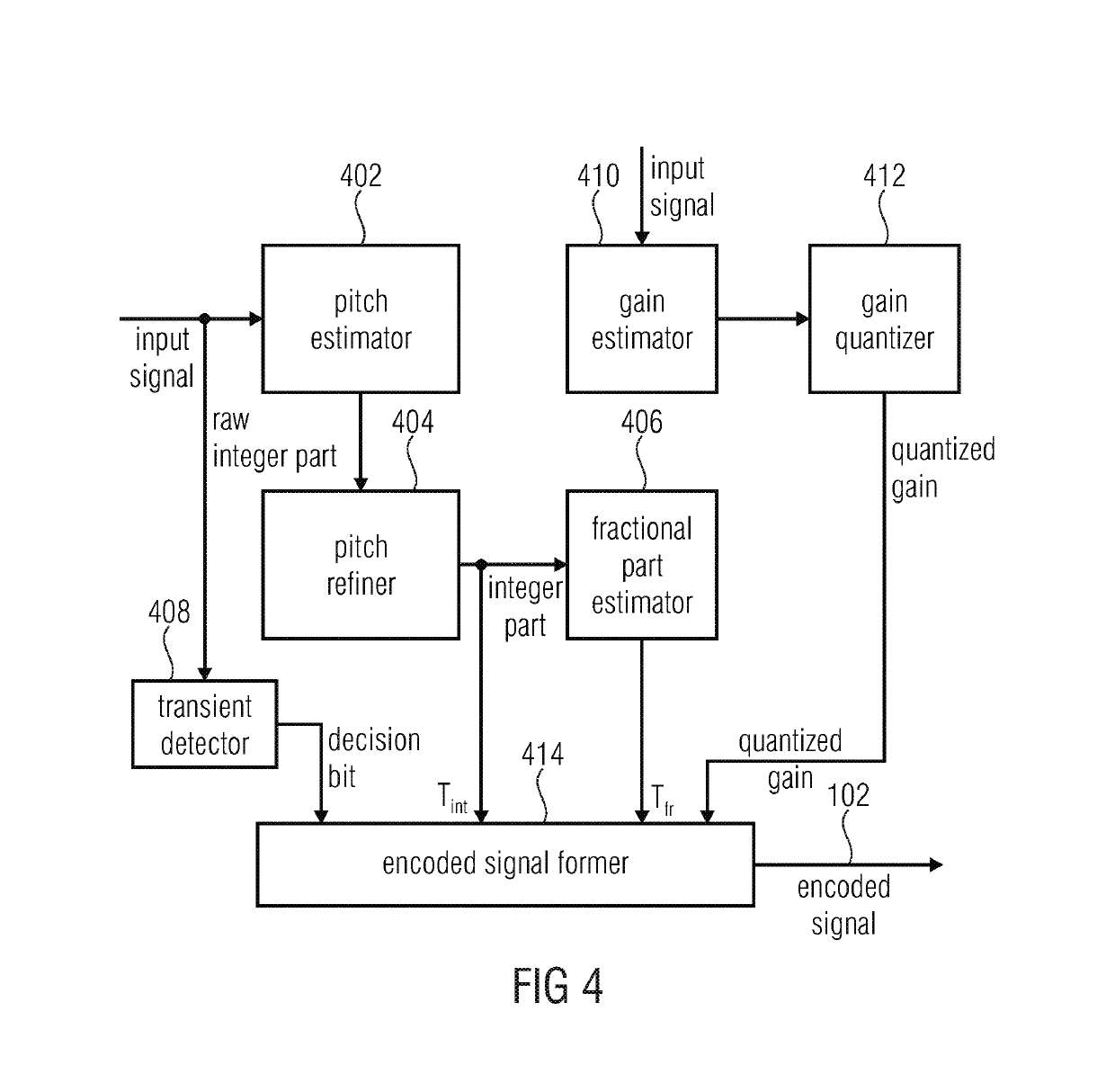Apparatus and method for processing an audio signal using a harmonic post-filter
a technology of harmonic post-filter and audio signal, which is applied in the field of apparatus and method for processing an audio signal using a harmonic post-filter, can solve the problems of reducing the performance of transform-based audio codec, introducing inter-harmonic noise, and further worsening of effects, so as to achieve better robustness
- Summary
- Abstract
- Description
- Claims
- Application Information
AI Technical Summary
Benefits of technology
Problems solved by technology
Method used
Image
Examples
Embodiment Construction
[0046]FIG. 1 illustrates an apparatus for processing an audio signal having associated therewith a pitch lag information and a gain information. This gain information can be transmitted to a decoder 100 via a decoder input 102 receiving an encoded signal or, alternatively, this information can be calculated in the decoder itself, when this information is not available. However, for a more robust operation, it is advantageous to calculate the pitch lag information and the pitch gain information on the encoder-side.
[0047]The decoder 100 comprises e.g. a frequency-time converter for converting a frequency-time representation of the audio signal into a time-domain representation of the audio signal. Thus, the decoder is not a pure time-domain speech codec, but comprises a pure transform domain decoder or a mixed transform domain decoder or any other coder operating in a domain different from a time domain. Furthermore, it is advantageous that the second domain is the time domain.
[0048]T...
PUM
 Login to View More
Login to View More Abstract
Description
Claims
Application Information
 Login to View More
Login to View More - R&D
- Intellectual Property
- Life Sciences
- Materials
- Tech Scout
- Unparalleled Data Quality
- Higher Quality Content
- 60% Fewer Hallucinations
Browse by: Latest US Patents, China's latest patents, Technical Efficacy Thesaurus, Application Domain, Technology Topic, Popular Technical Reports.
© 2025 PatSnap. All rights reserved.Legal|Privacy policy|Modern Slavery Act Transparency Statement|Sitemap|About US| Contact US: help@patsnap.com



